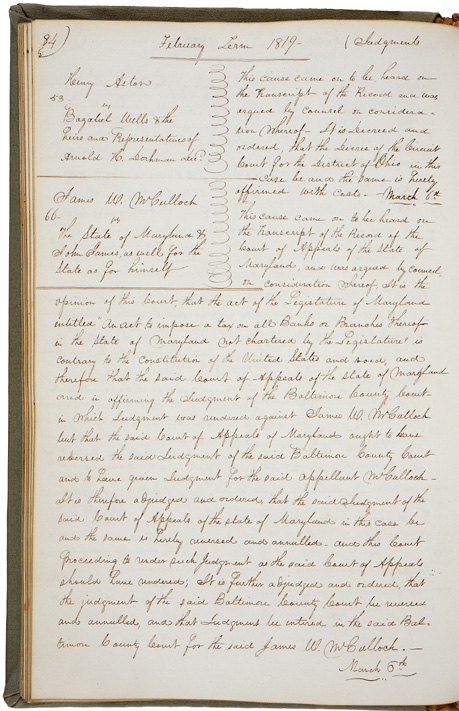McCulloch v. Maryland resulted in one of the most important decisions in the history of the Supreme Court of the United States. The court ruled in 1819 that Congress has implied powers in addition to those specified in the Constitution. The decision was based on a section of the Constitution called the “necessary and proper” clause. This clause gives Congress power “to make all laws which shall be necessary and proper” to carry out its other powers. The court also ruled that when federal and state powers conflict, federal powers prevail.

James McCulloch, cashier of the Baltimore branch of the Bank of the United States, refused to pay a Maryland state tax on the bank. The court first upheld the implied power of Congress to create a bank, because Congress needed a bank to exercise its specified powers. It then declared the tax unconstitutional because it interfered with an instrument of the federal government. In one of his most famous opinions, Chief Justice John Marshall said that the American people “did not design to make their government dependent on the states.”
See also Marshall, John .
